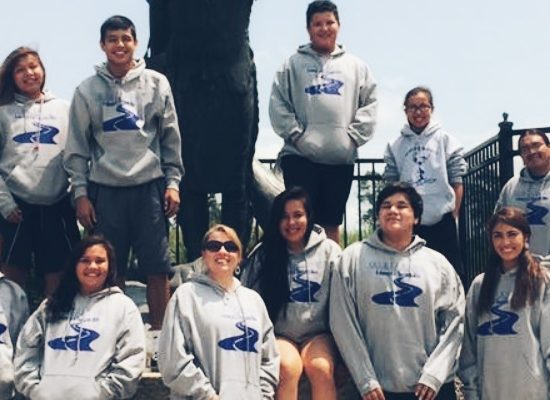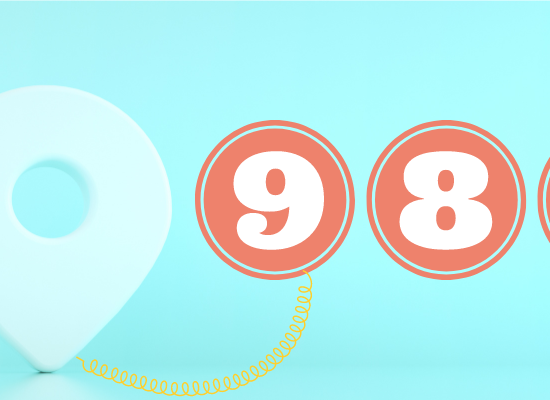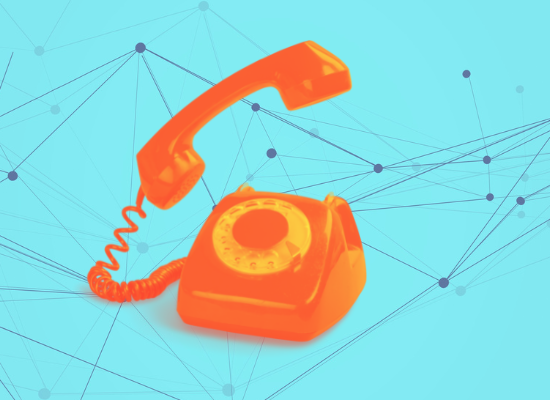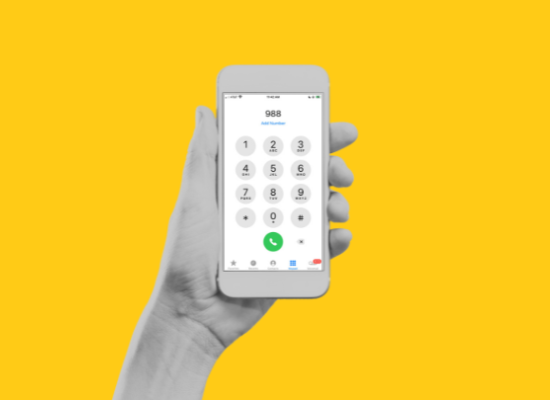
Stephanie Hepburn is a writer in New Orleans. She is the editor in chief of #CrisisTalk. You can reach her at .
On March 18, Virginia Gov. Ralph Northam signed Senate Bill 1302 into law, which designates a 988 call center and establishes a crisis call center fund. It also provides a monthly telecom tax, making Virginia the first state to pass 988 service fee legislation.
Heather Norton, MSW, assistant commissioner at the Department of Behavioral Health and Developmental Services (DBHDS), says Virginia legislators recognize that people in the state need increased access to behavioral healthcare in the community. “That includes a comprehensive and integrated crisis network,” she says, “and funding.”
Payer reimbursement for crisis service providers, says Norton, is vital for building out a robust behavioral health continuum of care. “It’s what’s going to allow for sustainability,” she says. However, shoring up and maintaining the new crisis system will require a braided approach that also includes grants and the new 988 service fee.
The new law increases the existing 911 tax and establishes a 988 tax for subscription and prepaid wireless services. While the taxes are separate, telecom companies and retailers can combine 911 and 988 charges. Norton says allowing them to charge fees jointly has raised concerns from Vibrant Emotional Health, the nonprofit organization that runs the SAMHSA-funded National Suicide Prevention Lifeline (called NSPL or Lifeline).
“They’re concerned it might cause tensions between 911 and 988 over how to divide combined fees,” she says. While it might not work for other states, Norton says DBHDS has a strong partnership with 911.
Under the 988 service fee, consumers with a subscription wireless plan will pay 12 cents monthly, while those who use prepaid wireless services will pay 8 cents per retail transaction. For example, a consumer who purchases prepaid wireless services for two phones will pay 16 cents.
Money from the 988 tax will go into the newly created Crisis Call Center Fund and be spent on the crisis system along the entire continuum of care. That includes the crisis call center, community care, mobile crisis teams, crisis stabilization centers, and the Mental Health Awareness Response and Community Understanding Services (Marcus) alert system.
The alert system is named after Marcus David-Peters, a science teacher who was experiencing a mental health crisis when he was shot and killed by a Richmond police officer on May 14, 2018. It’s designed to divert people in a mental health, substance use, or developmental disability crisis from a law enforcement response.
The objective is to create clear 911 protocols to divert calls to crisis call centers and mobile crisis providers. And Virginia localities must establish a voluntary database that makes mental health and emergency contact information readily available to the 911 and Marcus alert systems.
In planning for 988, Norton has worried about how the state’s Lifeline member call centers will be able to respond to increases in call volume. At present, the in-state answer rate is roughly 51%.
“The state’s regional call centers aren’t on one platform, making it difficult to adequately respond to calls, integrate services, and dispatch mobile crisis providers,” says Norton.
Virginia has developed a statewide crisis call center data platform RFP (request for proposal), which will allow the state to track answer rates, link to the statewide bed registry, and connect callers to community and private service partners. Norton expects it will be complete by mid- or late summer.
“The new platform is also going to give us information about what services we need to build up across the Commonwealth,” she says, “whether that’s mobile crisis, crisis stabilization units, or intensive outpatient programs.”
However, the platform is only one piece of the puzzle, says Norton. Like many other states, there’s been a marked lack of parity in Virginia between the continuum of medical versus behavioral healthcare treatments and services over the years. This is, in part, because of workforce shortages and reimbursement rates so low that many mental health professionals in the state don’t take private insurance, let alone Medicaid.
Consequently, the system has been overly reliant on the emergency room and inpatient psychiatric hospitalization.
For the five regional integrated call hubs to fully maximize their potential, they need to be able to dispatch and rapidly match people to services. That’s why, notes Norton, it’s envisioned each call center will have payment memorandums of understanding (MOUs) with service providers in their area.
The MOUs allow private crisis providers to bill Medicaid or other insurance or receive payment from the call center hub if they serve an uninsured person.
“The call centers will now be able to dispatch any type of mobile crisis service provider, whether public—those that are state-funded—or private,” Norton says.
She points out that building out mental health community services in Virginia can only be successful if done in partnership with the Department of Medical Assistance Services (DMAS), the agency that administers Medicaid. Otherwise, she says, gaps will remain.
“Over the past couple of years, while DBHDS worked to build community capacity with general fund dollars,” she says, “DMAS has worked to redefine and reinforce Medicaid reimbursement rates that would help sustain our efforts.”
Medicaid is Virginia’s largest behavioral health services payer. Alyssa Ward, Ph.D., behavioral health clinical director at DMAS, says that while roughly one-third of Medicaid members in the state have a behavioral health diagnosis, access to care has historically been low. The behavioral health enhancement initiative aims to address the issue by increasing Medicaid program funding streams to reimburse community providers.
“It seeks to allow Medicaid members more consistent access to community-based behavioral health treatment and services,” says Dr. Ward. “And to shift the Commonwealth’s historical reliance on high acuity services.”
DMAS and DBHDS collaborated with the Farley Center at the University of Colorado to develop an enhancement proposal for a trauma-informed, evidence-based, and cost-effective behavioral health care continuum. In 2018, the agencies conducted a service analysis to identify gaps and existing services, reviewed evidence-based practices, performed a stakeholder survey, and developed a vision document entitled the “Virginia Medicaid Continuum of Behavioral Health Services.”
The enhancement initiative redirects Medicaid toward integrated behavioral health services, outpatient services, and comprehensive community-based crisis supports. That includes 24/7 crisis hotlines, warm lines, peer crisis services, mobile crisis services, 23-hour stabilization, and short-term residential stabilization services.
“The aim,” says Dr. Ward, “is to support people in having choices in their care, to remain in their communities with their natural supports, and to avoid unnecessary hospitalizations.”
Dr. Ward and Norton say that the success of the interagency collaboration between DBHDS and DMAS is a testament to Hughes Melton, M.D., the commissioner of DBHDS who died tragically in 2019. “He had a knack for bringing people together,” says Norton.
Dr. Ward nods in agreement, saying that while there are often competing priorities in cross-agency collaborations, Dr. Melton kept the team focused on a common goal: the people they support and their vision for services. DMAS has recently renamed the initiative in his memory, using the call sign Dr. Melton used as a pilot. Project BRAVO stands for “Behavioral Health Redesign for Access, Values, and Outcomes.”
“When I look back on Dr. Melton’s life and career, it makes me realize how transformative it is to have a visionary leader,” she says.
“In many ways, we’ve carried the torch in his memory.”









